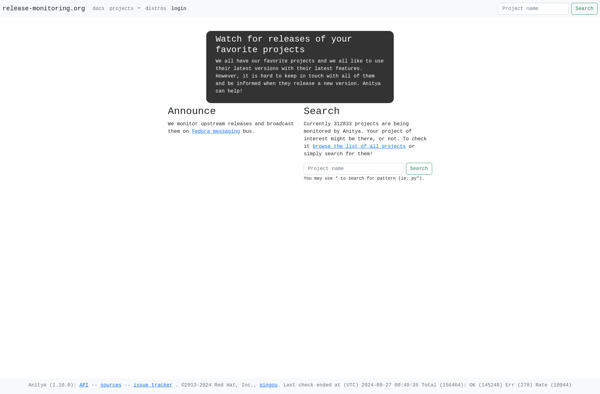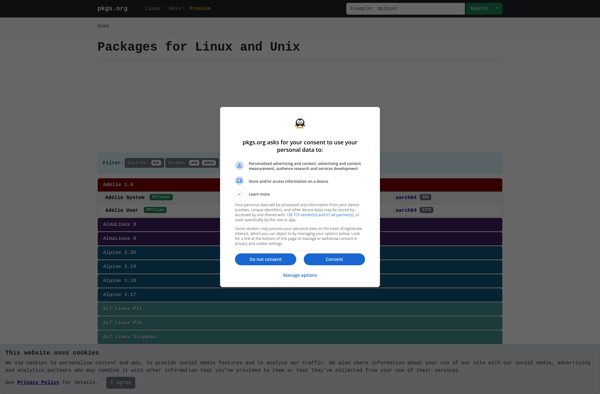Anitya

Anitya: Monitor Upstream Releases
Open source project monitoring upstream releases and distributing projects downstream, integrating with Fedora and other Linux distributions for tracking new versions of software packages.
What is Anitya?
Anitya is an open source project that helps automate monitoring of upstream releases and distributing projects downstream. It was started by Red Hat developers as a solution to track the plethora of upstream projects and all the releases happening all the time.
Anitya integrates with Linux distributions like Fedora and CentOS to monitor software packages in their repositories. When new upstream versions are released, Anitya can automatically open update requests to refresh the packages downstream. This helps reduce the manual burden of package maintainers watching upstream sources.
Some key features of Anitya include:
- Monitoring upstream sources via RSS feeds, scrapers, or manually configured URLs
- Support for sharing peer information between distributions
- Flexible configuration for blacklisting projects, setting release filters, or custom release mapping
- REST API and command line interface to manage Anitya programmatically
- Web interface to browse monitored projects and inspect high-level metadata
Overall, Anitya brings automation and intelligence to handling upstream software releases across Linux distributions. Its modular design allows it to be integrated into any downstream packaging infrastructure.
Anitya Features
Features
- Monitors upstream projects and detects new releases
- Integrates with Linux distributions like Fedora to automatically update packages when new upstream versions are released
- Web interface to browse monitored projects and view notifications
- REST API
- Email notifications when new versions are detected
- Support for monitoring projects from source control systems like Git, Hg, and SVN
- Plugin architecture to add support for more project types and version control systems
Pricing
- Open Source
Pros
Cons
Official Links
Reviews & Ratings
Login to ReviewThe Best Anitya Alternatives
Top Development and Package Management and other similar apps like Anitya
Pkgs.org

Repology

Whohas
